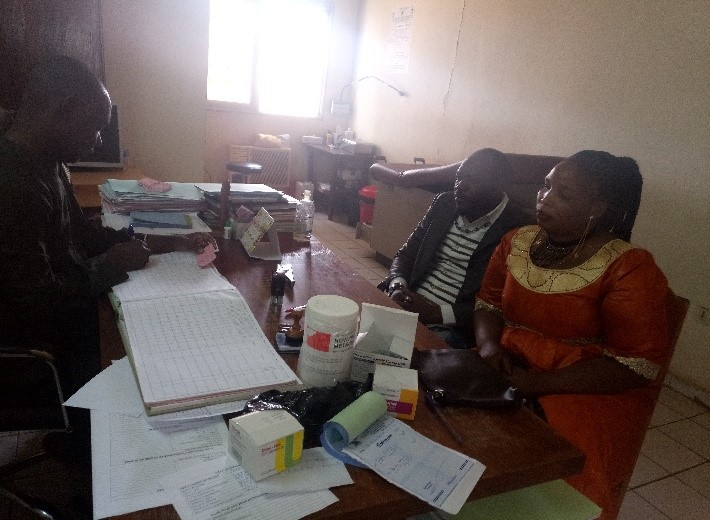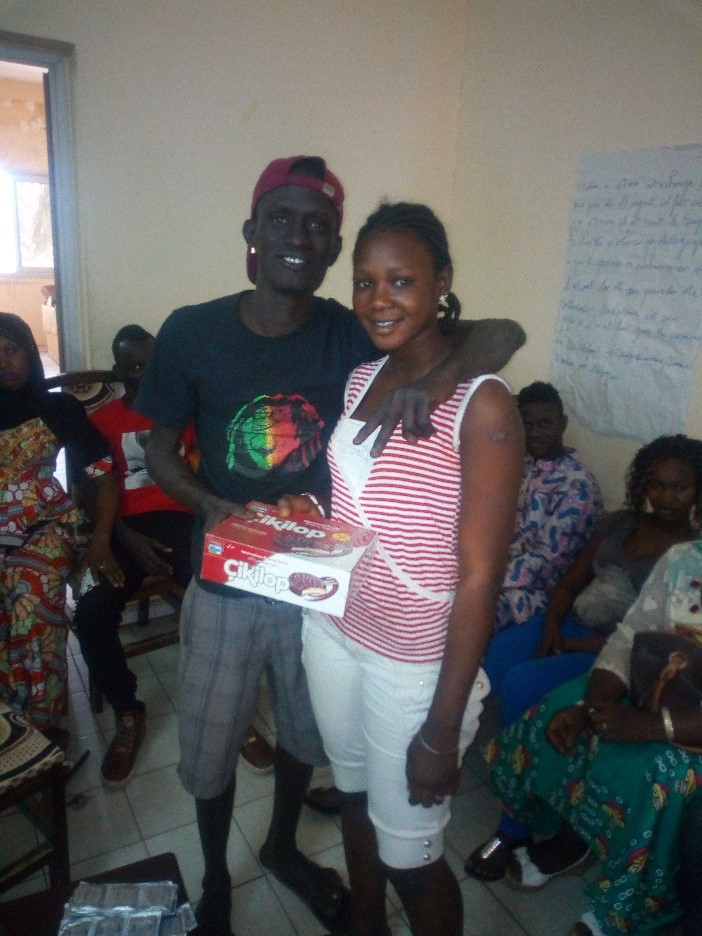Written by Natasha Mack, Editor, FHI 360

A couple receives counseling on HIV and STI prevention at Soutoura’s Valentine’s Day event.
Valentine’s Day is for lovers. On February 14, 2018, Soutoura, a nongovernmental organization providing HIV services in Mali, hosted parties for female sex workers (FSWs) and their boyfriends to mark the day. Events were held in six of Soutoura’s clinics. There were refreshments, music, and even door prizes. But the festivities were not over when the music stopped. Instead, the focus turned to sexual and reproductive health, with a service offering consisting of HIV testing, sexually transmitted infection (STI) screening, family planning counseling and methods, and provision of information about gender-based violence (GBV).
A partner of LINKAGES Mali, Soutoura provides HIV-related outreach and facility-based services to FSWs in six districts. LINKAGES, funded by PEPFAR through USAID, works toward the goals of increasing HIV prevention and testing, as well as enrollment and retention in care and treatment among those who test positive for HIV.
The motivation for the parties was a desire on the part of LINKAGES and Soutoura to gain an accurate assessment of HIV prevalence among FSWs’ boyfriends. In the PEPFAR quarter from October through December 2017, Soutoura had found a prevalence of 1.5 percent among FSW partners. This was higher than the national estimated prevalence of 0.8 percent among men in the general population. Soutoura and LINKAGES saw the Valentine’s Day events as an opportunity to reach FSWs and their boyfriends to assess HIV status and provide related services.

A couple with the door prize they received at Soutoura’s Valentine’s Day party.
The six clinics hosting the Valentine’s Day events saw a total of 90 couples in attendance. Ten people were already known to be living with HIV, and five had had recent HIV tests. Among the 75 people who were eligible for HIV testing, three serodiscordant couples were identified, with two FSWs (2.7 percent) and one boyfriend (1.2 percent) found to be living with HIV. Nearly half of the FSWs (46 percent) and one-quarter (24 percent) of their boyfriends were found to have an STI and were treated. Soutoura provided a family planning method (oral contraception, injectable, or implant) to the 16 percent of couples who chose a family planning consultation.
In addition, given that one-quarter (23 percent) of FSWs were found to have experienced GBV in the past, all FSWs were educated about how to inform LINKAGES staff of these incidents so that LINKAGES could, in turn, help them report the cases to the government and advocate on their behalf. Women experiencing violence in the future could be referred to a hospital for clinical care and to a drop-in center for psychosocial support.
“This gathering was a good initiative, because it gave us the opportunity to learn about the different prevention methods for STIs and HIV and will contribute to changes in our behavior,” said one FSW who attended. “We also learned about gender-based violence and are glad to know that there are response services for it. We can’t wait for the next St. Valentine’s Day.”
